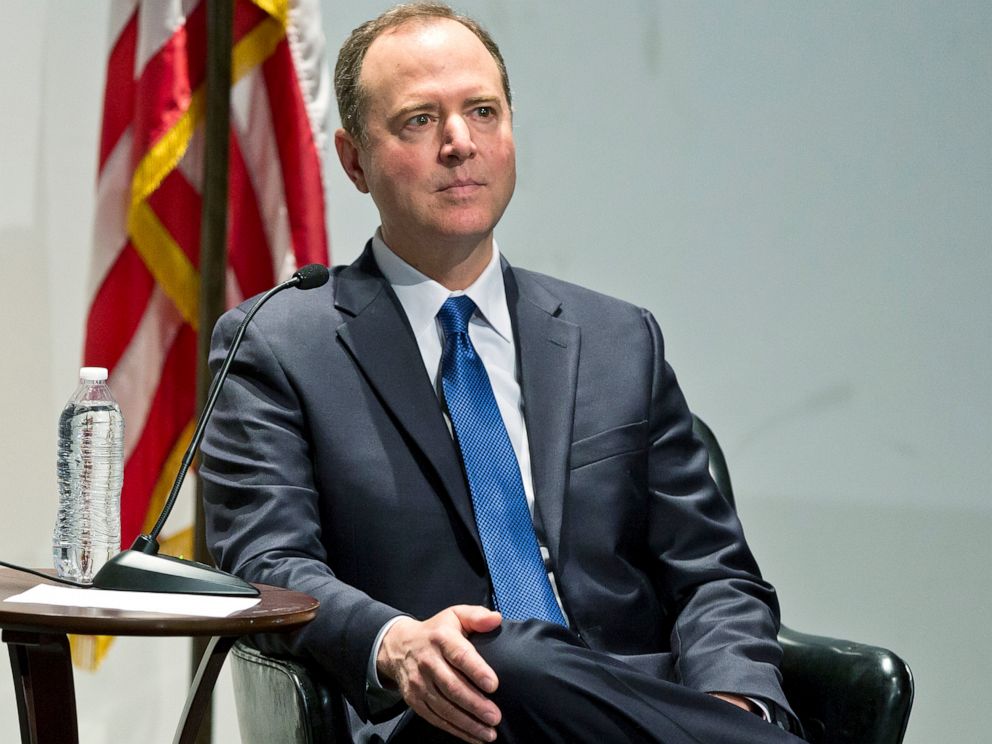Reps. Schiff, Jordan agree that Robert Mueller should testify before Congress
In his statement Robert Mueller said he did not intend to testify.
Reps. Adam Schiff, D-Calif., and Jim Jordan, R-Ohio, both agree that special counsel Robert Mueller should testify before Congress, but they disagree on the questions Mueller should be asked.
In his first public statement since the beginning of his investigation into Russian meddling in the 2016 presidential election, Mueller said he did not intend to testify to Congress and explained that he did not have the "option" of charging the president with a crime.
Since Mueller's statement, 51 House Democrats and nine of the 23 Democratic candidates for president have said they support opening impeachment proceedings against Trump. But House Democratic leaders, including House Speaker Nancy Pelosi, have taken a more deliberate approach.

When asked if House Democratic leaders will hold the line on impeachment, House Intelligence Committee Chairman Schiff told ABC News' Chief Anchor George Stephanopoulos on "This Week" Sunday, "I think we're going to do what's right for the country and at this point, the speaker hasn't reached the conclusion and I haven't had either it's not best for the country to put us through an impeachment proceeding that's destined for a failure in the Senate. That calculus may change if the president continues to demonstrate his unfitness for office."
Schiff suggested that the next step Democrats should take would be to bring Mueller in to testify, although Mueller said in his statement Wednesday, "The report is my testimony."
"I think he has one last service to perform. It's not enough merely to speak for 10 minutes and say I'm not going to answer questions for Congress and the American people. There are a great many things that aren't in the report. We want to find out what happened to those counterintelligence findings that were sent back to headquarters. And in terms of if the president is vulnerable of influence from Russia," Schiff said.
Stephanopoulos asked Schiff if he would subpoena the special counsel if he does not voluntary testify.
"That would be my recommendation. That will be a decision we'll have to make collectively and with our leadership when there's use of compulsion, because it may lead to litigation. That's not how this process for Bob Mueller should end. He's a dedicated public servant," Schiff responded.

House Oversight Committee ranking member Rep. Jim Jordan, R-Ohio, does not oppose having Mueller testify before Congress.
His main question for Mueller is why it took 22 months for the investigation to conclude.
"I got questions for him. When did you first learn there was no collusion? The central charge of the investigation. The central task was to find collusion," Jordan said.
He continued, "If you learned this early on, why did you wait almost two years before you told the country there was no conspiracy between the Trump campaign and Russia to influence the election? After all, that was your central task of this entire special counsel investigation."
Stephanoplous also asked Jordan if he was concerned if the President did obstruct justice as the special counsel "laid out four incidents in the obstruction of justice section of the report that met all three criteria for obstruction of justice-- an obstructive act, connection to an investigation, corrupt intent."
"Look, Bob Mueller had 22 months, $30 million, 19 lawyers, 40 FBI agents, 500 witnesses, 2,800 subpoenas. If he could have accomplished obstruction, he would have done it. He couldn't do it, that wasn't his finding, regardless of what the office of (legal) counsel told him at the -- at the Department of Justice what they can do with a sitting president or not, if he could have established obstruction of justice, he would have done it. He didn't do it. Bill Barr said that, that there wasn't obstruction of justice, Deputy Attorney General Rod Rosenstein said the same darn thing," Jordan responded.





